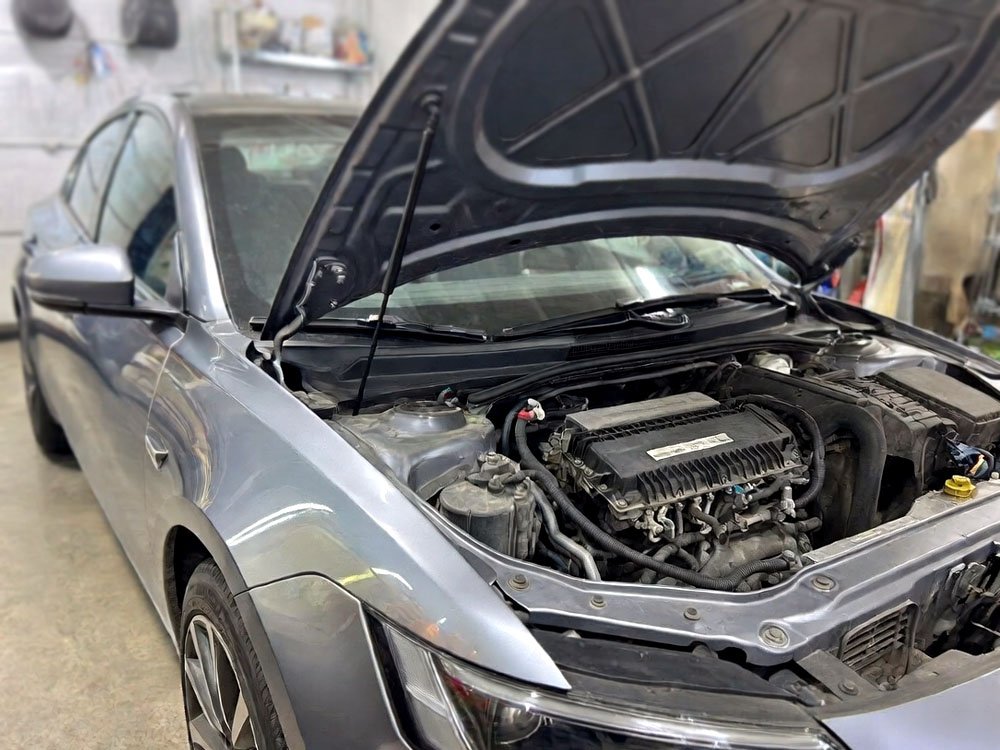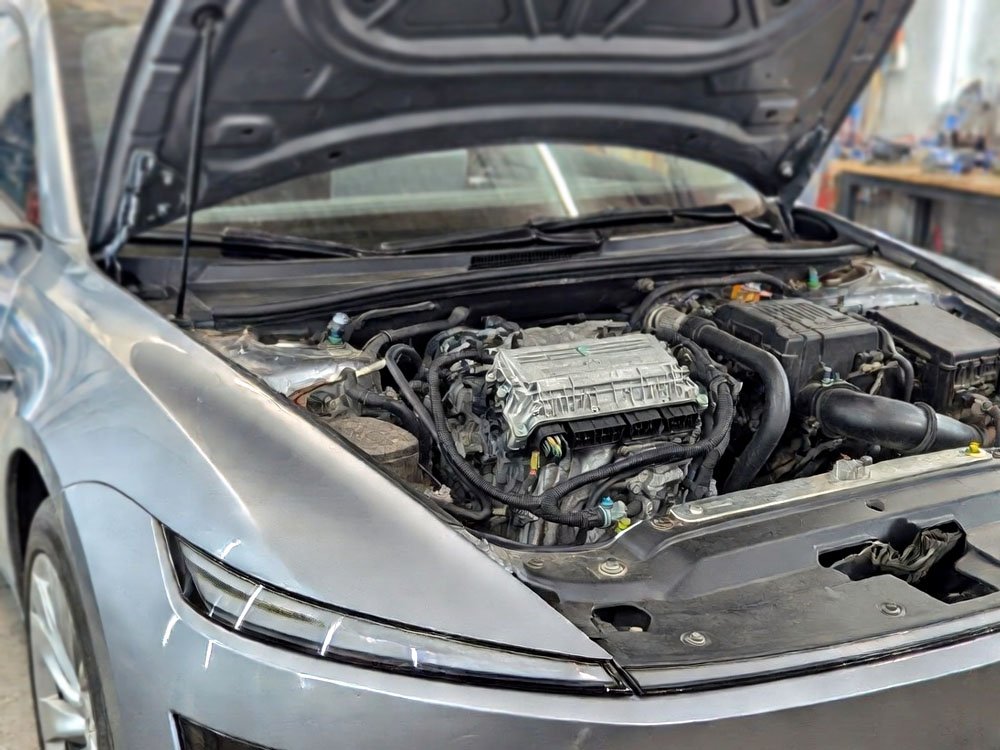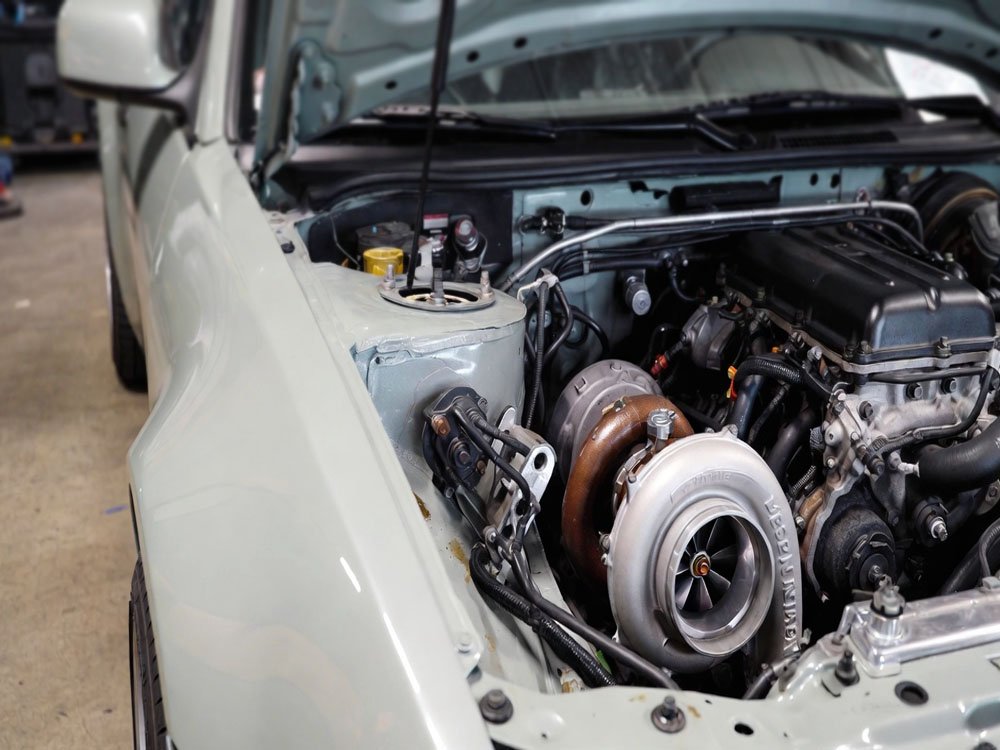The weights of Tesla car batteries are as follows: Model S – 1,200 to 1,400 pounds, Model 3 – around 1,058 pounds, Model X – 1,200 to 1,400 pounds, and Model Y – estimated to be around 1,060 pounds. As the automotive industry transitions towards electric vehicles, the weight of the car battery has become a crucial factor in determining the overall performance and efficiency of the vehicle.
Tesla, a leading electric vehicle manufacturer, has made significant advancements in battery technology, resulting in lighter and more energy-dense batteries for their various models. Understanding the weight of Tesla car batteries is essential for potential buyers and enthusiasts looking to understand the technical specifications and overall dynamics of these innovative electric vehicles.
We will explore the specific battery weights of Tesla’s popular models, providing insights into their impact on vehicle performance and range.
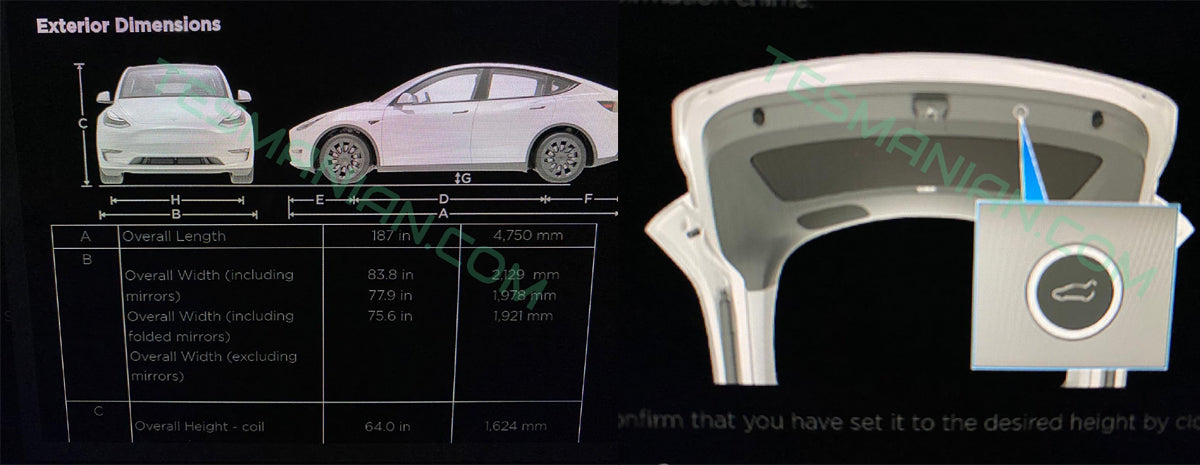
Credit: www.tesmanian.com
Understanding Tesla Car Batteries
Tesla car batteries have varying weights depending on the model, with the Model S, Model 3, Model X, and Model Y each having their unique battery weights. Understanding these differences can provide insights into the performance and range capabilities of each Tesla vehicle.
Welcome to our blog post on understanding Tesla car batteries. Tesla Motors, a renowned electric vehicle manufacturer, has revolutionized the automotive industry with its cutting-edge battery technology. In this article, we will delve into the fascinating world of Tesla car batteries, exploring the battery technology used in different models and understanding the battery capacity of the popular Tesla Model S, Model 3, Model X, and Model Y.
Battery Technology
Tesla car batteries are built using advanced lithium-ion chemistry, which offers higher energy density and longer life span compared to conventional lead-acid batteries. These high-performance batteries provide the necessary power to propel the Tesla vehicles, ensuring a smooth and efficient driving experience.
One of the key aspects of Tesla’s battery technology is its innovative battery management system (BMS). The BMS efficiently monitors and controls the charging and discharging process of the battery, optimizing its performance and prolonging its lifespan. This sophisticated system enhances the overall efficiency and reliability of Tesla car batteries.
Battery Capacity
Now, let’s take a closer look at the battery capacity of each Tesla model:
Model S
The Tesla Model S, a luxury all-electric sedan, is equipped with different battery options. The standard range Model S has a battery capacity of up to 100 kWh, providing an impressive range of around 370 miles (595 kilometers) on a single charge.
On the other hand, the performance-oriented Model S Plaid features a larger 110 kWh battery pack. With this upgraded battery, the Model S Plaid can achieve an astonishing range of up to 390 miles (628 kilometers), making it one of the longest-range electric vehicles on the market.
Model 3
The Tesla Model 3, a more affordable option from Tesla, also offers different battery choices. The standard range Model 3 comes with a 54 kWh battery pack, providing a range of approximately 263 miles (423 kilometers) per charge.
For those seeking a longer range, Tesla offers an extended range version of the Model 3 with a 75 kWh battery pack. This variant can travel up to 353 miles (568 kilometers) on a full charge, making it ideal for those planning longer journeys.
Model X
The Tesla Model X, an SUV designed for versatility and performance, boasts impressive battery capacity options. The standard range Model X features a 75 kWh battery pack, offering a range of up to 314 miles (505 kilometers).
For customers who prioritize longer range, Tesla also offers an extended range Model X with a 100 kWh battery pack. With this configuration, the Model X can travel up to 360 miles (579 kilometers) before it requires a recharge.
Model Y
The Tesla Model Y, a compact SUV, features similar battery options to the Model 3. The standard range Model Y comes with a 54 kWh battery pack, providing a range of around 244 miles (393 kilometers) on a single charge.
Just like the Model 3, Tesla offers an extended range configuration for the Model Y as well. This variant includes a 75 kWh battery pack, extending the range to approximately 326 miles (524 kilometers).
Overall, Tesla car batteries offer impressive capacities, allowing for long-range travel, and are backed by advanced technology to optimize performance. Understanding the battery technology and capacity of different Tesla models enables consumers to make informed decisions and embrace the future of sustainable transportation.
Battery Weights For Different Tesla Models
When it comes to Tesla vehicles, the weight of the battery plays a crucial role in determining its performance and range. In this blog post, we will take a closer look at the battery weights for different Tesla models, including the Model S, Model 3, Model X, and Model Y.
Model S
The Model S, a luxurious and high-performance electric sedan, is known for its impressive range and performance. In terms of battery weight, the Model S comes with a substantial battery pack that contributes to its long range capabilities.
The battery weight for the Model S varies depending on the specific version and options chosen. Generally, the battery weight range for the Model S is between 1,200 pounds to 1,400 pounds. This weight factor not only contributes to the Model S’s range but also to its stability and overall driving experience.
Model 3
If you’re looking for a more affordable option that doesn’t compromise on performance, the Model 3 might be the perfect choice. The Model 3 is Tesla’s popular electric sedan that provides an excellent balance between range, acceleration, and cost.
When it comes to battery weight, the Model 3 is relatively lighter compared to the Model S. The weight of the battery pack for the Model 3 typically ranges between 900 pounds to 1,200 pounds. This reduced weight allows the Model 3 to be more agile and nimble on the road while still maintaining an impressive range.
Model X
The Model X is Tesla’s luxury electric SUV that offers a spacious and comfortable driving experience. With its unique Falcon Wing doors and advanced features, the Model X stands out in the electric vehicle market.
In terms of battery weight, the Model X shares similarities with the Model S due to their similarities in size and performance capabilities. The battery weight for the Model X typically falls within the range of 1,200 pounds to 1,400 pounds. This substantial weight ensures the Model X can deliver a long-range while providing a smooth and stable ride.
Model Y
The Model Y is Tesla’s compact electric SUV, designed to provide versatility and practicality for everyday use. With its sleek design and impressive performance, the Model Y has gained popularity among electric vehicle enthusiasts.
Similar to the Model 3, the Model Y features a lighter battery pack compared to the larger Model S and Model X. The battery weight for the Model Y ranges between 900 pounds to 1,200 pounds, allowing it to strike a balance between range, agility, and efficiency.
Overall, battery weight plays a significant role in the performance, range, and driving experience of Tesla vehicles. Whether you choose the luxurious Model S, the affordable Model 3, the spacious Model X, or the versatile Model Y, each Tesla model offers an impressive range and performance powered by advanced battery technology.
Factors Influencing Battery Weight
Tesla cars have been a game-changer in the automotive industry, especially with its electric vehicles. One key factor that influences the overall performance and efficiency of Tesla cars is their battery weight. Understanding the factors influencing the battery weight of different Tesla models, such as Model S, Model 3, Model X, and Model Y, is essential to comprehend their engineering and performance.
Battery Size
The battery size is a crucial determinant of the weight of Tesla car batteries. Larger battery sizes tend to increase the overall weight of the vehicle. As the capacity of the battery increases, so does the weight, impacting the car’s dynamics and range. The heavier the battery, the more energy it can store, thereby affecting the driving range and performance of the vehicle.
Battery Chemistry
The chemistry of the battery cells and the materials used in their construction play a significant role in determining the battery weight. Different chemical compositions and materials result in varying energy densities and weights. For instance, lithium-ion batteries are commonly used in Tesla vehicles due to their high energy density and comparatively lighter weight. Understanding the battery chemistry is essential in comprehending the trade-offs between energy storage capacity and weight in Tesla car batteries.
Comparison Of Battery Weights
The weight of a car’s battery has significant implications for its performance and efficiency. Comparing the battery weights of various Tesla models can provide valuable insights into their range, power, and overall capabilities.
Model S Vs Model 3
The battery weight comparison between the Model S and Model 3 demonstrates the evolution of Tesla’s technology. While the Model S features a slightly heavier battery, the Model 3 showcases advancements in battery technology, offering impressive performance with a lighter weight.
Model X Vs Model Y
When comparing the battery weights of the Model X and Model Y, it becomes evident how Tesla has optimized their battery designs for different vehicle types. The Model Y, despite its smaller size, maintains a competitive battery weight compared to the larger Model X, reflecting advancements in battery efficiency and density.
Implications Of Battery Weight In Tesla Cars
When it comes to electric vehicles (EVs), the weight of the battery pack plays a significant role in determining various aspects of the car’s performance. Tesla, as a leading manufacturer of EVs, understands the importance of battery weight and has made significant strides in optimizing the weight of their models, including the Model S, Model 3, Model X, and Model Y. In this article, we will delve into the implications of battery weight in Tesla cars, specifically focusing on performance, range, and charging time.
Performance
The battery weight in a Tesla car has a direct impact on its performance. A heavier battery pack can affect the car’s acceleration, handling, and overall driving experience. Tesla has managed to strike a balance between weight and performance by utilizing advanced technologies and materials to reduce the overall weight of their battery packs.
By employing lightweight yet durable materials such as lithium-ion cells and advanced cooling systems, Tesla has been able to achieve optimal power-to-weight ratios in their vehicles. The lighter the battery pack, the better the performance, as it allows for quicker acceleration and enhanced maneuverability on the road.
Range
Battery weight also plays a crucial role in determining the range that a Tesla car can achieve on a single charge. With a lighter battery pack, the car can travel more miles, providing a longer driving range for its owners. Tesla’s continuous efforts to reduce battery weight have resulted in improved range performance across their lineup.
The combination of lightweight materials, aerodynamic design, and efficient energy management systems allows Tesla vehicles to maximize the range and minimize energy consumption. This means that Tesla owners can enjoy longer drives and fewer charging stops, making electric mobility even more convenient and practical.
Charging Time
In addition to performance and range, battery weight also affects the charging time of a Tesla car. A lighter battery pack requires less energy and time to charge fully, allowing Tesla owners to get back on the road quickly. Tesla’s Supercharger network further enhances the charging experience, providing high-speed charging capabilities for their vehicles.
By leveraging advancements in battery technology, Tesla has been able to reduce charge times significantly. The lighter battery packs in Tesla cars not only make the charging process more efficient but also contribute to the overall sustainability of electric vehicles by reducing the dependence on fossil fuels.
In conclusion, the implications of battery weight in Tesla cars are vast and far-reaching. By reducing the weight of their battery packs, Tesla has managed to enhance the performance, increase the range, and reduce the charging time of their vehicles. As battery technology continues to evolve, we can expect further advancements and improvements in the future.
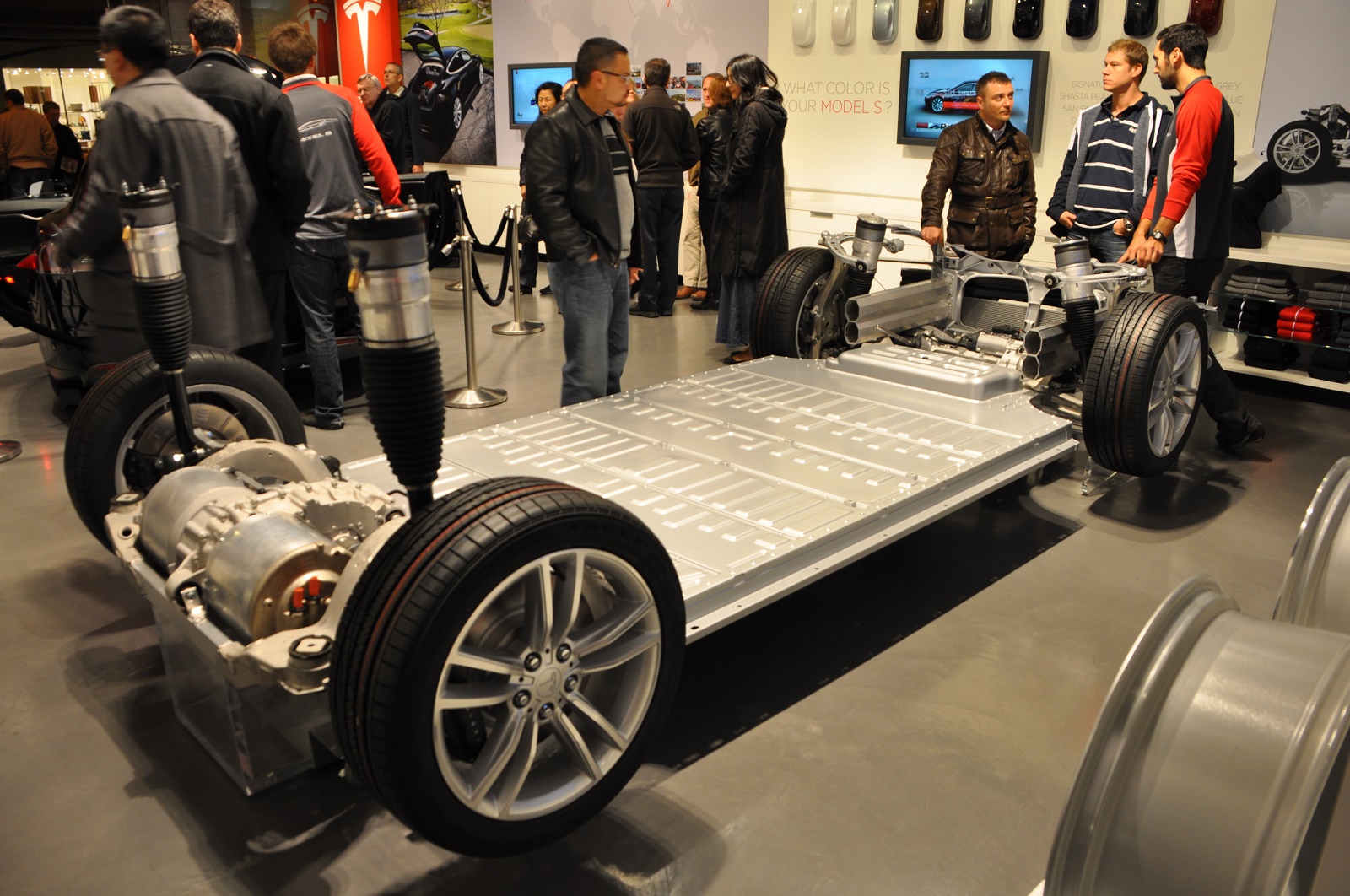
Credit: www.greencarreports.com
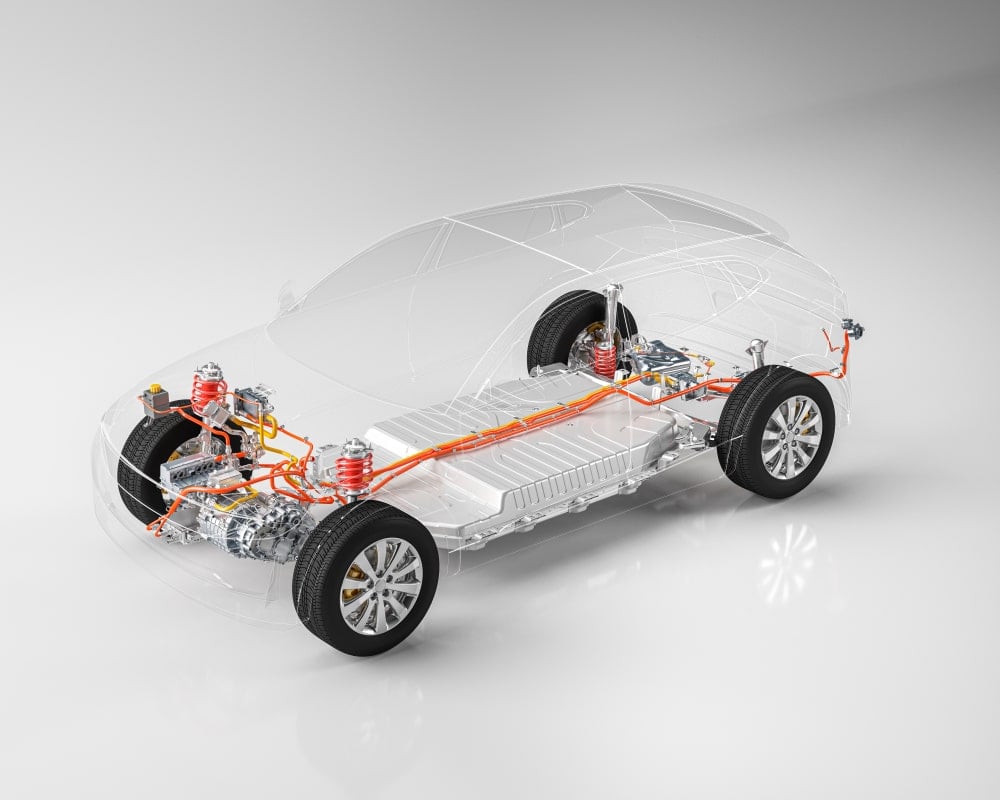
Credit: blog.evbox.com
Conclusion
To summarize, the weight of Tesla car batteries varies among different models, with the Model S having the heaviest battery and the Model 3 being the lightest. The battery weight directly impacts the performance and range of the vehicle. Understanding the battery weights can help potential buyers make informed decisions based on their specific needs and preferences.
As Tesla continues to innovate and improve its battery technology, we can expect to see advancements in both weight reduction and overall performance.
